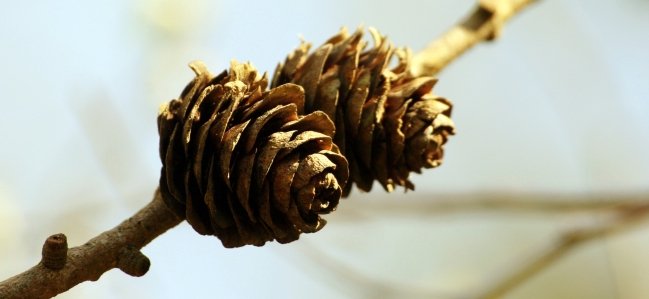What Plagiarism and Copyright Infringement Have in Common
 When I started this site in 2005, my intent was to focus on what I saw (from first hand experience) as a swelling tide of plagiarism on the Internet. However, it quickly became clear that I couldn’t separate the issues of copyright and plagiarism, making it important that this blog talk about copyright alongside the plagiarism.
When I started this site in 2005, my intent was to focus on what I saw (from first hand experience) as a swelling tide of plagiarism on the Internet. However, it quickly became clear that I couldn’t separate the issues of copyright and plagiarism, making it important that this blog talk about copyright alongside the plagiarism.
Still, I routinely get questions about why a blog on plagiarism is talking about copyright or what the two have to do with one another.
Legally the answer is pretty straightforward. If you plagiarize a copyright-protected work, there’s a decent chance that you infringed it as well. Though that overlap isn’t perfect as you can plagiarize a work without infringing it, such as copying only ideas plagiarizing a public domain work, and you can also infringe a work without plagiarizing it, such as with piracy, it’s true in many cases.
But do plagiarism and piracy have other connections? After all, both have seen a significant growth online and both continue to be growing problems today? Still, the two acts seem and feel ethically very different. Where copyright infringement is widespread, almost casual in some circles, plagiarism is still, almost universally, viewed as a major ethical violation and something to be decried.
But while the two acts are very different in many ways, at their core there is a striking similarity and that similarity should give content creators and creatives pause for concern.
That’s because the roots from which the intertwined trees of plagiarism and infringement spring forth are the roots that will be hardest to kill.
Outcomes Ahead of Process
Jason Chu, who works at iThenticate (Disclosure: I am a paid consultant for iThenticate) once said that plagiarism is about “Putting outcomes ahead of process,” meaning that plagiarists, generally, only care about the end result and not how they get there.
This is true all across the board when it comes to plagiarism. A student in a class that plagiarizes wants a good grade, regardless whether they’ve learned the material. A plagiarist online wants an impressive site, regardless of whether or not they are talented or have worked hard enough deserve the praise. A plagiarist in research wants the publication and the respect that comes with it regardless of how much they do or do not advance their field.
But while Chu only spoke about plagiarism, the same can also be said for many forms of copyright infringement. A pirate who downloads the movie wants to watch that film (or at least have it in their collection) regardless of whether or not their actions help support the creators of the film (and encourage them to make more). The same can be said for a music pirate downloading a song or any other form of infringement.
In each of those cases, the desired outcome takes precedent over the process and what the outcome is supposed to help achieve. After all, a good grade, a solid website and publication in a major journal are not meant to be just personal accolades, but are tools to help one learn, convey quality to outsiders and further a field of research. Likewise, a watched move or an enjoyed song is supposed to help those who created and encourage the creation of more.
But on the Internet, the process is easy to forget about. The Web is very much a place of instant gratification, where anything you want is at your fingertips, legally or not.
When I send an email to a friend, it’s easy to forget about the protocols and the dozens of machines that are involved in the process. I click send and the email arrives, the process isn’t just put behind the outcome, it’s invisible and it’s invisible by design.
This isn’t to say that we should make the Internet more difficult to use, but we have to find a way to show that many processes do have meaning and importance, something that’s increasingly difficult to do online.
Loss of Respect for Authors
Another issue that plagiarists have in common with other infringers is that they take the work of other creators and use them in a way the original author or copyright holder does not approve of (save when plagiarists obtain work for the purpose of reuse).
This defying of wishes, whether the desire to not be plagiarized or to not be infringed, points to another issue, that many find it difficult to empathize or connect with the people they are hurting. This is something we see all the time in our day to day interactions online, it’s easy to forget that the person at the other end of an email chain or a forum thread is a human being.
It gets even more difficult when you start dealing with musicians other artists who seem to be a world away and are behind record labels and large corporations. This is especially true since many of the most public faces behind major copyrighted works, in particular movies and music, manage to become very wealthy, and thus many people have trouble identifying or sympathizing with them. Meanwhile, the work of countless others, whom are often paid very little, is rarely mentioned.
It becomes easy to justify almost any action when you feel that no one will be hurt and it’s often times easy to believe exactly that, especially true with the Internet.
While the Web is a great thing, finding and keeping our humanity online isn’t just about how each of us setting our boundaries with the digital world, it’s also about keeping in mind the humanity of others we encounter online and that’s something that is increasingly difficult to do.
Why they Are Different
But while plagiarism and copyright infringement share many of the same roots, they do have one critical difference: Who is victimized.
With an infringement, the only victims are the people involved in the creation of that work. With a plagiarism, the audience for the new work is also a victim, having been misled into believing someone was the author of a work when, in truth, they were not.
That distinction plays a big role in why the Internet, in general, still views plagiarism as a significant ethical error while, in many circles, taking other forms of infringement so lightly. Put an infringing image on your Facebook on a social news site like Reddit and it, at most, is a minor transgression. In some cases, the photographer or photo agency might be the bad guys if they ask for it to be removed.
However, post it and claim that you or your girlfriend created it and it becomes a major scandal.
The two acts are only separated by the additional lie to the public. That difference is a strange one and it shows how much emphasis is placed on transgressions to the public and how little emphasis is placed on the transgressions against the creator.
Bottom Line
In many ways, plagiarism and copyright infringement spring from the same roots, even if the trees grow in different, though still intertwined, directions.
However, those roots run deep and they are going to be hard to attack or even address. Worse still, as we move forward with the Internet, the problems are actually likely to get more and more difficult as time goes on, not easier.
Simply put, the day-to-day reality of the Internet is that of a faceless, nameless place where instant gratification is expected and processes, no matter how important are either buried or eliminated, legally or not.
But while the bulk of this column seems to be very down about the Internet and its future, I’m still optimistic that the Web can solve these problems as well and make it a better place for everyone. However, it’s going to require a willingness to do so and that willingness seems to be lacking, save in certain circles.
Bringing about that cooperation and willingness is going to be difficult and require sacrifices on all sides, but it can be done and, if we want an Internet that respects content creators and works to reduce plagiarism and infringement, we have to do it.
Want to Reuse or Republish this Content?
If you want to feature this article in your site, classroom or elsewhere, just let us know! We usually grant permission within 24 hours.
